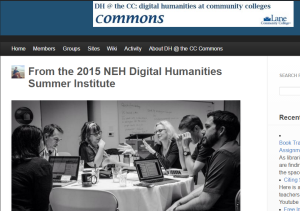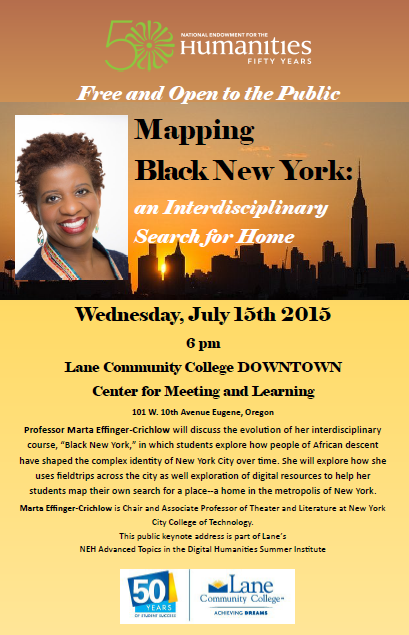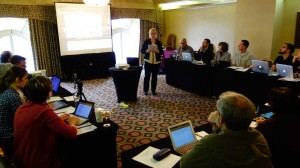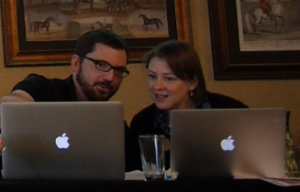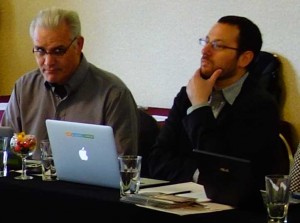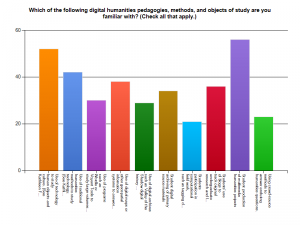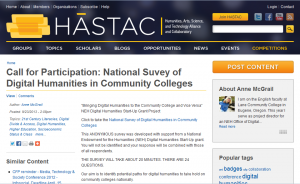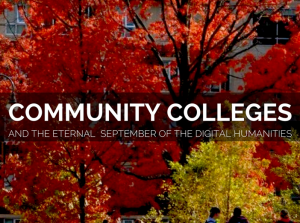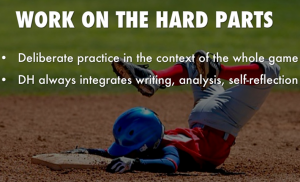This past weekend, I attended THATCamp Hybrid Pedagogy, a really wonderful gathering of like-minded teachers and tinkerers that gave me a better understanding of how doing DH at the CC can get done.
First of all, the tortured humanists stayed home or kept their torment as a sidebar. The prevailing attitude could be summed up as, “Ok, so what can we make or do? How can we do it? What would be cool? What would work?” Intellectual work embodied in the Google doc, the tweet, the map, the mini-MOOC, the astronomy tool (you must visit the astronomy tool). Brainy, humanistic fun with a fully engaged group of young and not-so-young (ahem) scholars.
Not that Polly Anna was present–in fact, I really could feel the frustration and worry from those up and coming scholars whose core work is collaborative and hasn’t yet fit into the byzantine tenure metrics that were never that straightforward anyway but are a few years from acknowledging the intellectual labor of DH through tenure and promotion. But still. The work.
I still intend to revise the Google doc we developed during our session on how we might bring DH to community colleges and SLACs (as I was to learn that day small liberal arts colleges). In that session, Jesse, Meg, Keri, Tony, Mary and I brainstormed how we might collaborate to build a curricular path to DH at the lower-division levels and scaffold into four-year degrees, working in both directions.
But what I really came away with from that weekend was how so much of what folks are doing in hybrid pedagogies with DH tools is really not far from what some of my CC colleagues are already doing in brick-and-mortar, including my own offline teaching. So I took out my (f2f) Shakespeare class “box assignment” menu that I hand to all my literature students at the beginning of class, and I quickly thought through how I might digitally redo them. I posted my ideas in a Google doc here. Of course, now the hard part comes–teaching these and developing the real step-by-steps, but that will come.
HT to Peter Rorabaugh for suggesting I post this and that other Campers do the same. Take your classroom practice and flip it, DH-style. And see what turns up. And share it. What can we make or do? How can we do it? What would be cool? What would work?
